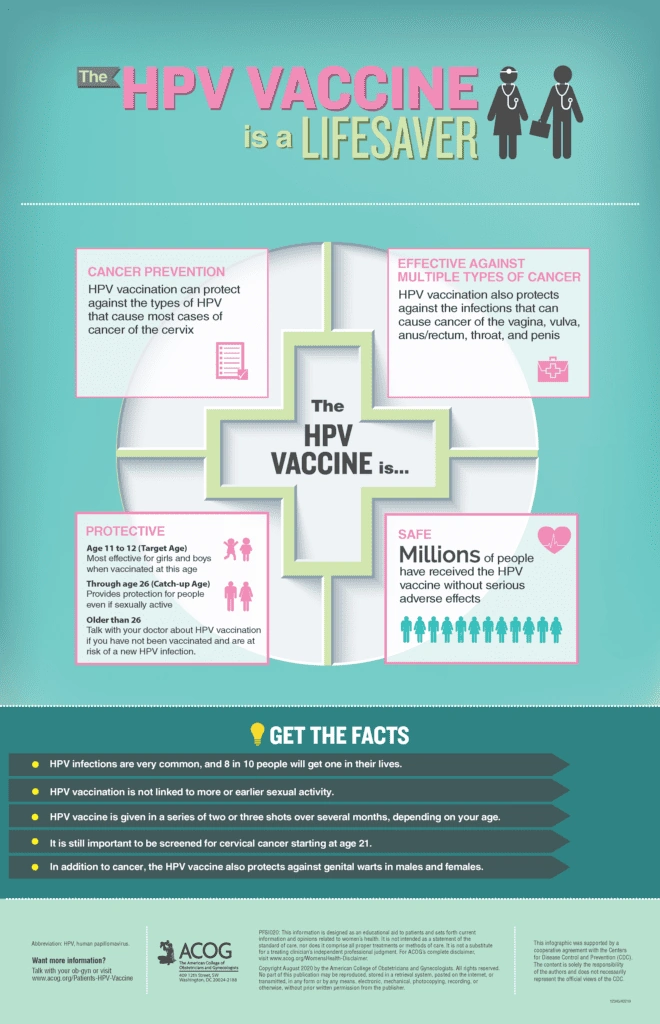HUMAN PAPILLOMAVIRUS (HPV)
Services: Testing
HUMAN PAPILLOMAVIRUS (HPV)
Your health care professional may suggest that you have a loop electrosurgical excision procedure (LEEP) as part of the evaluation or treatment for Cervical Cancer Screening.
Your doctor may recommend this procedure if they notice changes to your cervix during a pelvic exam or if your Pap test results are abnormal. Abnormal cells could be benign growths (polyps), or they could be precancerous.
Human papillomavirus (HPV) is the most common sexually transmitted infection (STI) in the United States.

HUMAN PAPILLOMAVIRUS (HPV)
What is HPV?
Human papillomavirus (HPV) is a virus. Like all viruses, HPV causes infection by entering cells. Once inside a cell, HPV takes control of its internal machinery and uses it to make copies of itself. These copies then infect other nearby cells. HPV infection is a slow process. In most people, the immune system clears the body of HPV before it causes disease. HPV infections can cause genital warts. HPV infections also can cause changes in cells that can lead to cancer over time, including cancer of the cervix.
Human papillomavirus (HPV) is the most common sexually transmitted infection (STI) in the United States. About 80 percent of women will get at least one type of HPV at some point in their lifetime. It is usually spread through vaginal, oral, or anal sex. Many women do not know they have HPV because it usually has no symptoms and goes away independently. Some types of HPV can cause illnesses such as genital warts or cervical cancer. There is a vaccine to help you prevent HPV.
How is HPV spread?
- Through vaginal, oral, or anal sex: HPV can be spread even if there are no symptoms. This means you can get HPV from someone who has no signs or symptoms.
- From genital touching: A man does not need to ejaculate for HPV to spread. HPV can also be passed between women who have sex with women.
- During Childbirth, from a woman to her baby
What are the signs and symptoms of HPV?
Most people with HPV do not have any symptoms. This is one reason why women need regular Pap tests. Experts recommend that you get your first Pap test at age 21. The Pap test can find changes on the cervix caused by HPV. If you are a woman between ages 30 and 65, your doctor might also do an HPV test with your Pap test every five years. This is a DNA test that detects most types of HPV.
Wondering if you, as an adult, may still be at risk for new HPV infections?
An estimated 14 million new HPV infections occur annually in the US, half of these in people ages 25 and over.
What can I do to prevent or treat Human Papillomavirus
How can I prevent HPV?
There are ways to prevent HPV. One way is to get the HPV vaccine called Gardasil. The other way to avoid HPV or any STI is not having sexual contact with another person. If you do have sex, lower your risk of getting an STI with the following steps:
- Use Condoms. Condoms are the best way to prevent STIs when you have sex. Research shows that condom use is linked to lower cervical cancer rates. HPV can also occur in female and male genital areas that are not protected by condoms. The HPV vaccine does not replace or decrease the need to wear condoms. Make sure to put the condom on before the penis touches the vagina, mouth, or anus. Other birth control methods such as birth control pills, shots, implants, or diaphragms will not protect you from STIs.
- Get tested. Be sure you and your partner are tested for STIs. Talk to each other about the test results before you have sex.
- Be monogamous. Having sex with just one partner can lower your risk for STIs. After being tested for STIs, be faithful to each other. That means that you have sex only with each other and no one else.
- Limit your number of sex partners. Your risk of getting STIs increases with the number of sexual partners.
- Vaccination: Gardasil 9 information below.

David A. Marcantel
MD, FACOG - MEDICAL DIRECTOR
What is GARDASIL 9?
GARDASIL 9 is a vaccine (injection/shot) given to individuals 9 through 45 years of age to help protect against diseases caused by some types of Human Papillomavirus (HPV).
What diseases can GARDASIL 9 help protect against?
- In girls and women 9 through 45 years of age, GARDASIL 9 helps protect against vulvar and vaginal cancers, cervical cancer, anal cancer, pre-cancerous cervical, vulvar, vaginal, anal lesions, and genital warts.
- In boys and men 9 through 45 years of age, GARDASIL 9 helps protect against anal cancer, pre-cancerous anal lesions, and genital warts.
These diseases have many causes. These diseases are caused by nine types of HPV: HPV types 6, 11, 16, 18, 31, 33, 45, 52, and 58. GARDASIL 9 only protects against diseases caused by these nine types of HPV. People cannot get HPV or any of these diseases from GARDASIL 9.
Our health care professionals are here to help guide you in all of your healthcare decisions. We will help you decide if you and your child should get the vaccine.
To schedule an appointment to discuss your options, call us at 877-800-0239
Our entire team is dedicated to you
We Help You Navigate Healthcare Decisions With Confidence
We Have Decades of Medical Experience and Providing Compassionate Care.

TEstimonials
What Our Patients Say
What an exceptional experience! I have never been to a nicer medical office. Ever! I was let called in after a second of completing my check in and everyone was so very nice. I wish i knew the name of the assistant that answered all our questions, she was very nice and informative. Don’t hesitate ladies!
The staff and everyone I met on the care team were extremely warm, kind, and knowledgeable. Although visit times are short, they made sure to explain everything thoroughly and made sure I understood. Even though they spoke quickly (lots of info to share in a short 15 minute slot) I never felt rushed or dismissed. I highly recommend this location and especially Dawn.

